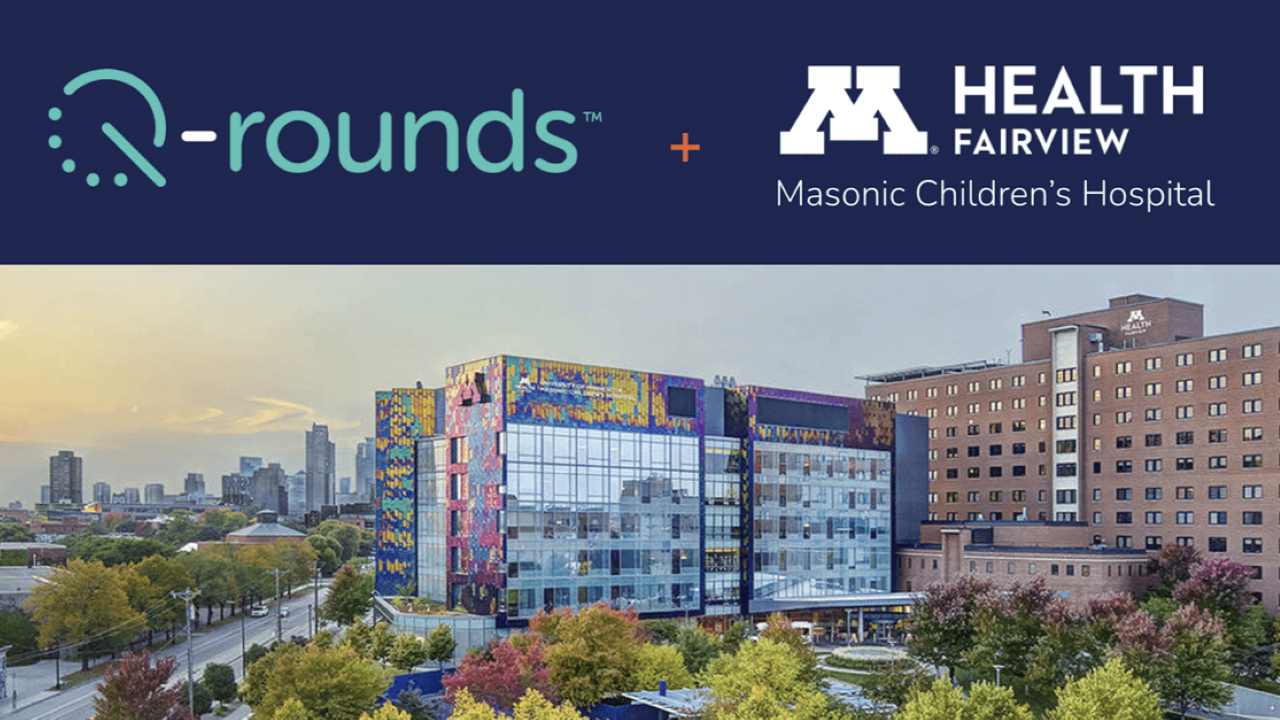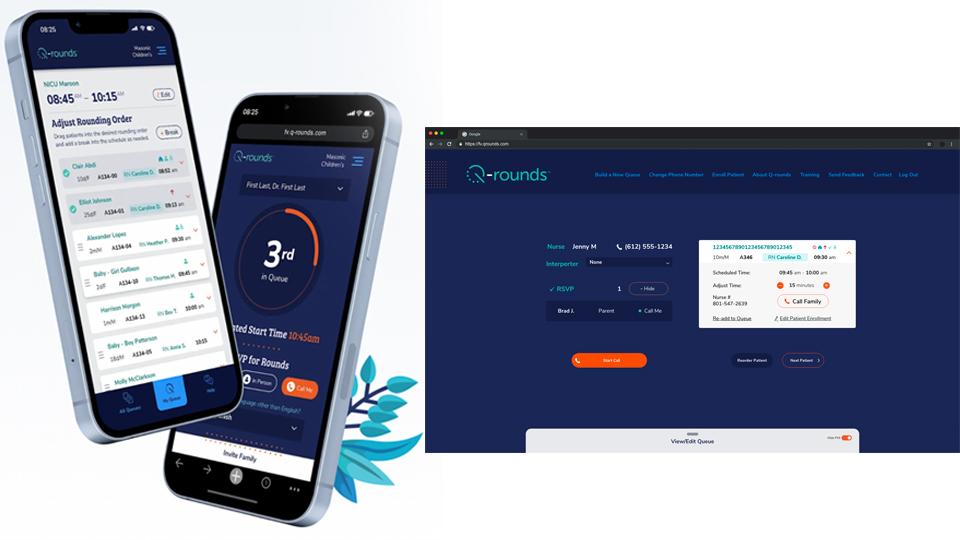
Breakdowns in communication between care providers and families of hospitalized patients are one of the greatest causes of serious medical errors, some even leading to death. These communication breakdowns are often caused when nurses and family members are unable to attend daily rounds given by doctors to discuss important medical information. Hospital rounds are unpredictable, very brief slots of time when a doctor is able to step into the room to assess a patient.
Many family members end up taking extended periods of time off work in order to be present during their loved one’s hospital stay. The inability to predict when the doctor will stop by during rounds causes the family members to remain at their loved-one’s bedside all day long, for fear of missing their turn with the doctor. If a family member has been waiting for hours and just happened to step out of the room to grab a bite to eat or use the restroom while it’s their turn, there is no second chance for that day. This more often than not causes important information to slip through the cracks. Additionally, some family members do not even have the ability to take time off work to be there in person, which can perpetuate inequities.
Solving the Problem
Coordinating attendance of doctors, nurses, and family members is a challenge medical professionals know all too well; however, when all parties do happen to be present for rounds, the risk of serious medical errors decreases by 38 percent. This led Michael Pitt, MD, professor of Pediatrics at the University of Minnesota Medical School, to the idea of creating a system where family members and other medical staff can access an online queue that tells them when to expect the doctor for rounds.
John Sartori, PhD, associate professor in the University's Department of Electrical and Computer Engineering, was working with Pitt on another project when he was approached with the idea for a virtual rounding queue software that can provide real-time updates via text message to patients, families, nurses, and even interpreters of when to expect the doctor, and offers an opportunity to join remotely when they are unable to attend in person. This led to the creation of Q-rounds.
Testing the Software
As Pitt and Sartori developed the software for Q-rounds, they received support from the UMN Venture Center’s Discovery Capital program, and ultimately launched as a UMN startup in 2021 that they spun off with a third co-founder, Chelsea Klevesahl.
“The Discovery Capital program was crucial to us in helping equip us to go from academic researchers to startup entrepreneurs. We have been able to raise funding and get into the marketplace where Q-rounds is changing the hospital experience for patients in large part because of the insights gained from Discovery,” shared Pitt.
In 2023, Pitt and Sartori tested the software in a twelve-week pilot evaluation at the Masonic Children's NICU. Three days into the pilot, multiple doctors expressed that no matter what happened with the pilot, they wouldn’t be turning the technology off. During the rest of the twelve weeks, family attendance during rounds more than doubled, nurse attendance for the entirety of the doctors’ rounds tripled, and over one thousand family members joined rounds remotely. Doctors who used the software describe their rounds as running much more efficiently. Nurses who participated expressed feeling more valued and incorporated. Families shared that being able to expect the doctor at a specific time and receive real-time updates allowed them to remain present in their daily lives while still being there to support their hospitalized loved-one.

“Nurses are telling us that for the first time in years, they are consistently able to take their lunch breaks again because they can plan their days more efficiently,” shared Pitt.
Impact to Date and Future Aspirations
The NICU at the Masonic Children’s hospital has used Q-rounds for only one year since the pilot project and has already expanded to multiple additional units. Since the pilot began, Pitt and Sartori shared that there has not been a single day where doctors didn’t continue to use Q-rounds technology, and in the last year, over 10,000 family members have been able to join rounds remotely.
As Pitt and Sartori continue to expand the technology to additional units in the hospital, they are also in the process of bringing this groundbreaking solution to other hospital systems that have shown excitement about the product.
Unsurprisingly, the excitement for this product is overwhelming. The process to get the hospitals to pay for and commit to a new technology uptake can be a challenge. However, with initial financial help through grants and UMN Technology Commercialization, Q-rounds now has seven employees and expects to get Q-rounds into new hospital systems before the end of this calendar year. Their long-term goal is that every family benefits from the technology of Q-rounds.